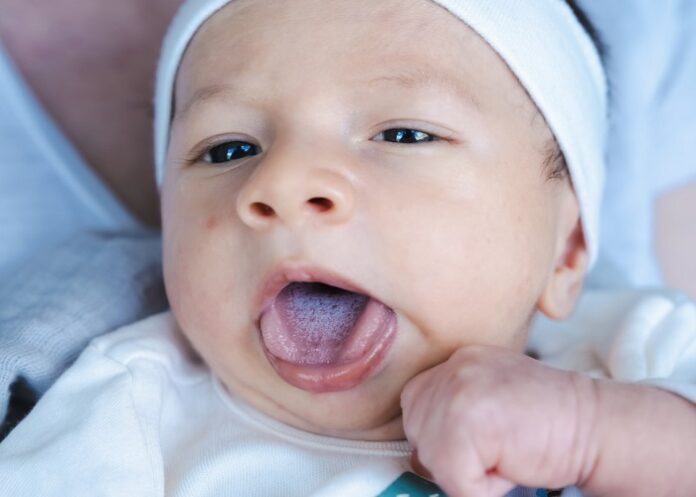The American Academy of Paediatrics (AAP) has sounded the alarm about what they believe is an over-diagnosis of tongue-tie – a condition in infants that occasionally can affect breastfeeding – which the physicians believe is far too frequently treated with unnecessary surgery.
The Association is the latest, and largest, medical society to sound an alarm about the increasing use of scissors or lasers to cut away some infants’ tongue tissue when breastfeeding is difficult, reports The Independent.
“It’s almost an epidemic,” said Dr Maya Bunik, a Colorado-based co-author of the report.
Experts say there isn’t a good count of how many infants each year are being treated for tongue-tie with surgery, though Bunik believes the annual tally may exceed 100 000. Research suggests many of those treatments are not necessary, she added.
In a report, the AAP encourages paediatricians and other medical professionals to consider non-surgical options to address breastfeeding problems. The report cites a study that suggests less than half of the babies with the characteristics of tongue-tie actually have difficulty breastfeeding.
Ankyloglossia, or “tongue-tie,” occurs when an infant is born with a tight or short band of tissue that tethers the bottom of the tongue’s tip to the floor of the mouth. The condition can make it hard for the infant to extend and lift their tongue to grasp a nipple and draw milk, which in turn can be painful for the mother.
Doctors say it's critical to get breastfeeding on track in the first three to four weeks, and surveys indicate most parents want to breastfeed, so it’s natural that they want a quick solution to a problem, Bunik said.
Ankyloglossia diagnoses have been increasing worldwide, although there is no uniform diagnostic criteria for this condition and no consensus on how to treat it. One common approach is to cut the tissue with scissors, but dentists increasingly are using lasers to vaporise the tissue, some charging $800 or more.
But the procedures can cause pain and sore mouths, potentially deterring babies from trying to breastfeed, Bunik said.
“The practice (of treating tongue-tie) has become very common without a lot of good data,” said Wisconsin paediatrician Dr Jennifer Thomas, who also co-authored the report.
The report also recommends lactation experts, paediatricians and surgeons and other medical professionals work with parents to evaluate possible reasons for breastfeeding challenges and make the best treatment decision.
The AAP, which has 67 000 members, started working on the report in 2015 after some members started noticing that an increasing number of patients were going to dentists seeking treatment for tongue-tie, Thomas said. Paediatricians were only finding out after the surgeries.
At least two other medical groups have issued statements about tongue-tie. In 2020, the American Academy of Otolaryngology-Head and Neck Surgery issued a consensus statement in which member physicians said they believe tongue-tie is being over-diagnosed in some places, and that there isn’t sufficient evidence to support claims that using lasers is superior to other techniques.
A year later, the Academy of Breastfeeding Medicine, an international group, called for more research into tongue-tie treatment, emphasising that decisions “require a high level of clinical skill, judgment, and discernment”.
The American Dental Association said it agrees with a 2022 policy statement by the American Academy of Paediatric Dentistry, which noted not all children with ankyloglossia need surgical intervention and that a team-based approach with other specialists can aid in treatment planning.
peds.2024-067605
See more from MedicalBrief archives:
Extended breastfeeding delivers brain benefits
Formula feeding linked to 70% higher antibiotic-resistance genes in babies

